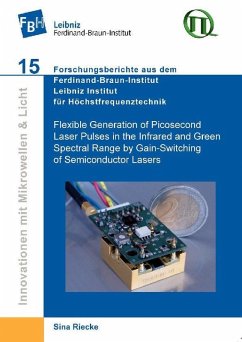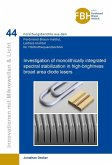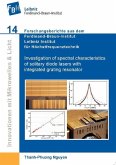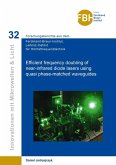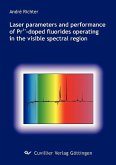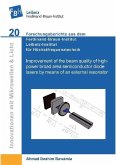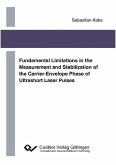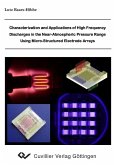Picosecond laser pulses find diverse applications for example
in material processing as well as in analysis and sensing.
Fluorescence lifetime spectroscopy in particular requires pulses
with variable repetition rate and moderate pulse energy.
While suitable pulses in the red and blue spectral range can
be provided by gain-switched laser diodes, the generation of
green laser pulses requires a more elaborate setup based on
second harmonic generation.
The starting point is a gain-switched infrared distributed-feedback
laser diode. The optimization of the laser design and the
operating conditions allows to generate spectrally narrow picosecond
pulses with a peak power above 1 W. Different gain
media are compared for further amplification of these pulses,
and options for the miniaturization of the master-oscillator
power-amplifier system are explored. The resulting intense
infrared pulses are then used for second harmonic generation
of green picoseconds pulses. Their peak power of above
5 W exceeds all previous green pulse sources with variable
repetition rate. In terms of pulse energy and background suppression,
the reported green pulses are thus ideally suited for
fluorescence lifetime spectroscopy
Dieser Download kann aus rechtlichen Gründen nur mit Rechnungsadresse in A, B, BG, CY, CZ, D, DK, EW, E, FIN, F, GR, HR, H, IRL, I, LT, L, LR, M, NL, PL, P, R, S, SLO, SK ausgeliefert werden.

